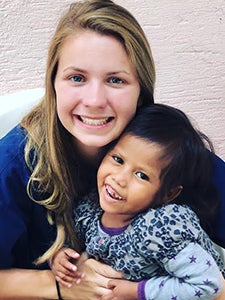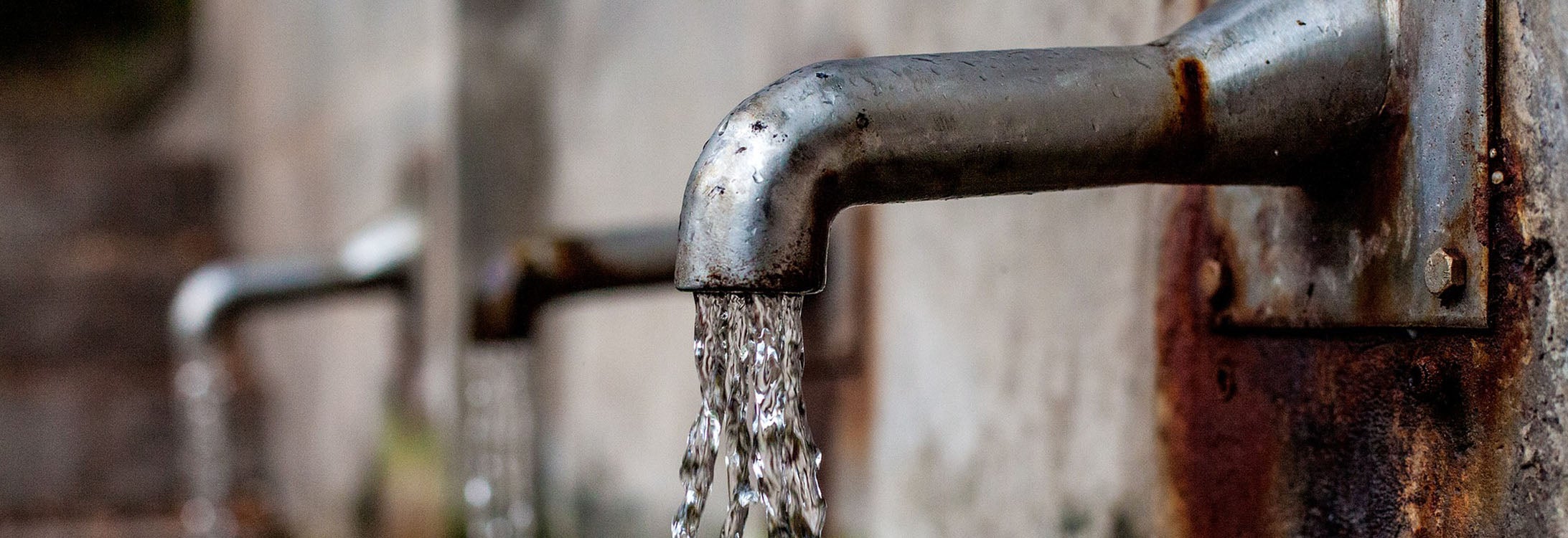Student Profile: Brooks Holt

Undergraduate researcher Brooks Holt is studying how community collaboration affects public health initiatives in rural Guatemala.
Major: Nursing
Minor: Hispanic Studies
Mentor: Dr. Kim Larson
School: Nursing
Project Title: “Evaluating the effect of community engagement on the impact and use of water filters in four villages in Guatemala”
My research explores the impact of community collaboration on the sustainability of a public health initiative. Basically, we are seeing whether a contribution of 40q ($5.50) for a household water filter promotes sustainability of the filter within the household compared to when the water filter is given for free.
How did you get involved in undergraduate research?
As an EC Scholar, we’re required to take many classes pertaining to research through the program.
Why did you choose your research topic?
I chose this topic because I participated in a five-week cultural immersion seminar that included spending three weeks in Guatemala during the summer of 2017. While I was there, Dr. Kim Larson and another Honors student were conducting research. This piqued my interest and I decided to complete research related to public health nursing in Guatemala as well.
What’s been your favorite part of conducting undergraduate research?
I absolutely adore any time I get to spend in Guatemala working with the people that I respect and admire. But other than the travel, I have truly enjoyed being given the chance to interview families and gather data. Just seeing how much these families value their water filter and how they use it daily has made me want to continue to promote the most sustainable water filter project possible in the future.
What challenges have you faced while conducting undergraduate research?
At times I have found it difficult to communicate with our partners in Guatemala. We have an obligation to disseminate what the research discovers back to our Guatemalan partners and this will be difficult considering it must be condensed and translated to facilitate understanding.
Why is your research important for the average, everyday person?
This research is based off of a public health initiative in rural Guatemala, but also adds to the research on community collaboration in general. If monetary collaboration and follow-up proves to improve the sustainability of a clean water project, it points to the efficacy of community collaboration worldwide for many programs.
What’s your ultimate goal or accomplishment that you hope your research will help you achieve?
I truly hope that this research will open eyes to the most efficient way to go about creating a public health initiative. For example, I have distributed household tabletop water filters in the past without the use of community collaboration. The results of this research have the power to change the way a clean water project is run, allowing for the most beneficial outcome for the community.
How do you feel that participating in undergraduate research has helped prepare you for life after college?
Participating in undergraduate research has given me the skills I will need as a future nurse to stay up to date on evidence-based practice. I have learned so much about how to search for research articles, determine their validity, interpret them, and incorporate what they say into practice. I know this will be valuable in my future career.
Do you have any advice for other students interested in conducting undergraduate research?
Research can be tedious and difficult at times, but the rewards are far beyond the hours spent writing or collecting data. Research is how questions can be answered or even more questions discovered. Peer-reviewed and documented research has the power to change practice for the better.
